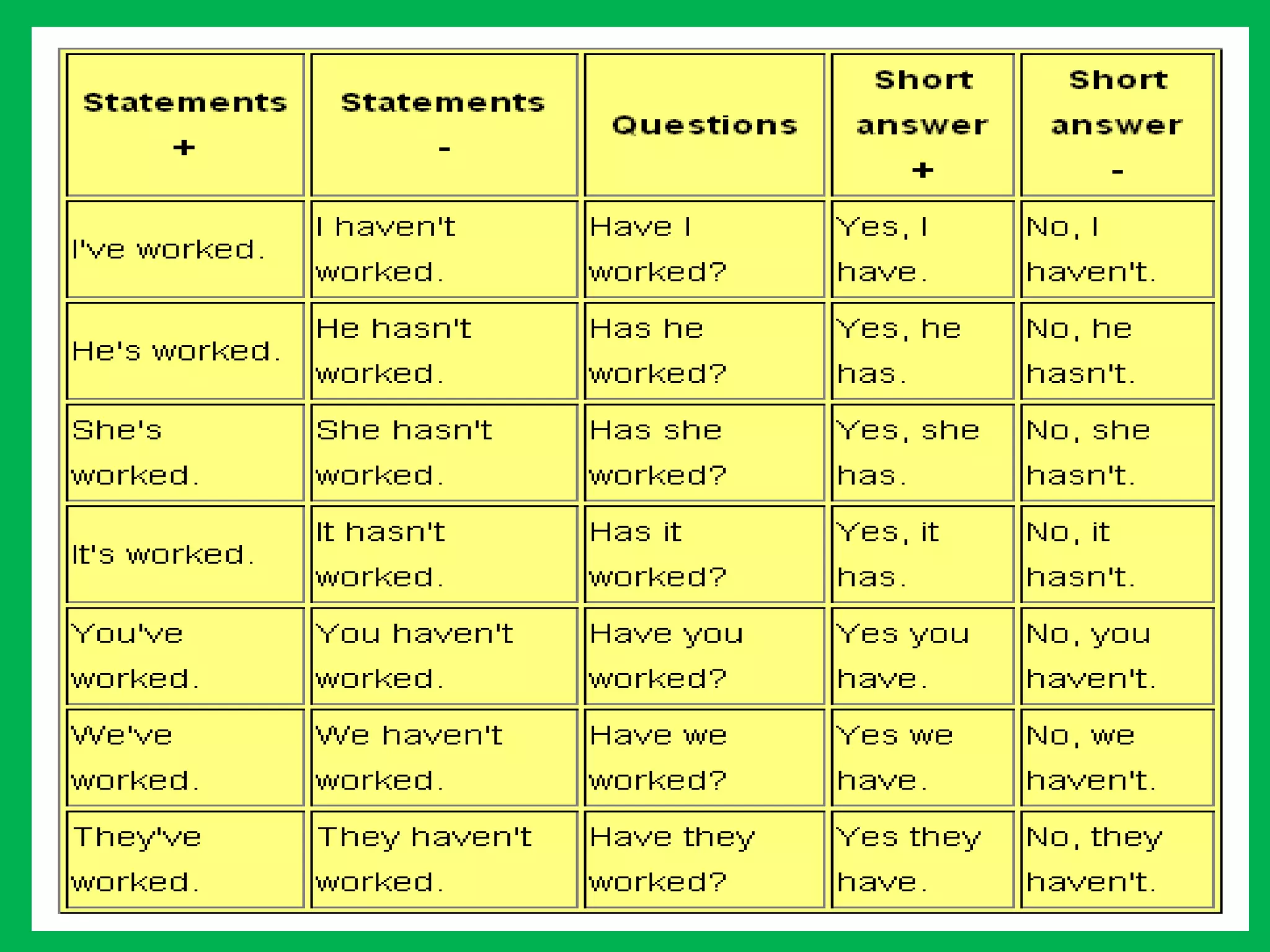The document discusses the present perfect tense in English. It provides the form of the present perfect tense for singular and plural subjects. It then lists four main uses of the present perfect tense: 1) to express a situation that began in the past and continues to the present, 2) to express a recently completed action, 3) to express an action that occurred at an unspecified time with current relevance, and 4) to describe an action that occurred over a period of time that is now complete. Examples are given for each use. The document concludes with a short quiz to test understanding of using the present perfect tense.





































